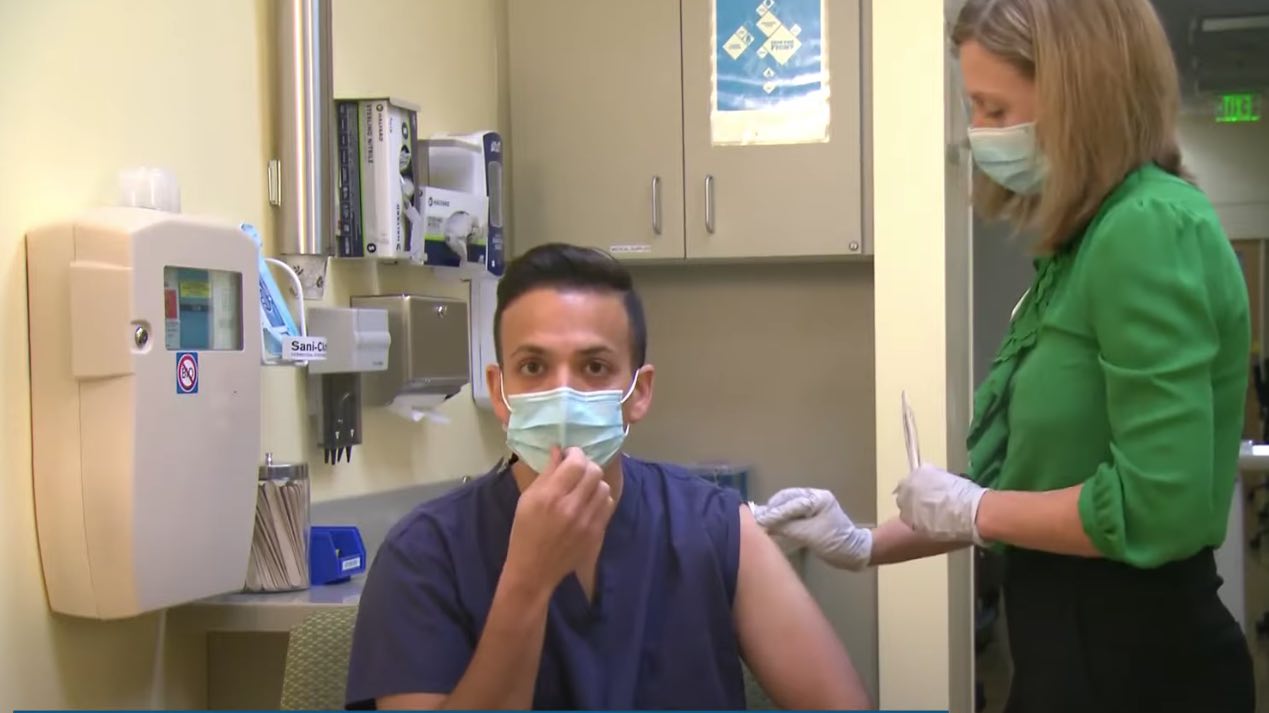Anticardiolipin antibodies not a reliable indicator of preeclampsia risk
Reuters Health • The Doctor's Channel Daily Newscast
December 3, 2010 • Hospitalist, Internal Medicine, Medical Students, Nurses/NP/PA, Ob/Gyn, Reuters Health • The Doctor's Channel Newscast, Women’s Health
NEW YORK (Reuters Health) – While elevated levels of anticardiolipin antibodies are associated with preeclampsia, measuring levels of anticardiolipin antibodies cannot be used to predict risk of preeclampsia in clinical practice, a Brazilian team reports.
Writing in the December issue of Obstetrics & Gynecology, Dr. Aline Defaveri do Prado, with the Sao Lucas Hospital in Porto Alegre, and colleagues note that preeclampsia is very common in women with antiphospholipid syndrome. Consequently, “the role of anticardiolipin antibodies as a risk factor for preeclampsia in women with no evidence of autoimmune diseases has been the focus of many studies for the past decades.”
However, the relationship of anticardiolipin antibodies with preeclampsia remains controversial, so the researchers conducted a meta-analysis of twelve relevant studies that met inclusion criteria. All the studies controlled for risk factors traditionally associated with preeclampsia.
“Pooled odds ratio (OR) for association of anticardiolipin antibodies with preeclampsia was 2.86,” according to the report. “Pooled OR for anticardiolipin antibodies and severe preeclampsia was 11.15.”
However, the results are not enough to use anticardiolipin levels to predict preeclampsia, the authors say. Asked why that is so, given the apparently significant odds ratio associating anticardiolipin (aCL) antibodies with preeclampsia, Dr. do Prado said it relates to the fact that the analysis was based on observational studies; as such, it requires a search for differences and similarities between studies.
“Even though an association between aCL antibodies and preeclampsia has been found in our work, we found the studies to have moderate heterogeneity, we found a few number of final studies with small study sizes, and we found limited number of anticardiolipin-positive subjects in the studies,” she explained in an email.
Furthermore, the definitions of preeclampsia varied widely, possibly implying different clinical scenarios, Dr. do Prado continued. “One cannot simply see the odds ratio and the confidence interval in our work. It is necessary to understand all the variables in the primary studies that built up the final odds ratio.”
The authors conclude that there is insufficient evidence to support the use of aCL antibodies as predictors of preeclampsia. “Our systematic review demonstrates there is a need for further research regarding the association of anticardiolipin antibodies and preeclampsia,” Dr. do Prado concluded, “and the best way to completely clarify this association is to conduct a large-scale cohort study.”
Obstet Gynecol 2010;116:1433–1443.
Writing in the December issue of Obstetrics & Gynecology, Dr. Aline Defaveri do Prado, with the Sao Lucas Hospital in Porto Alegre, and colleagues note that preeclampsia is very common in women with antiphospholipid syndrome. Consequently, “the role of anticardiolipin antibodies as a risk factor for preeclampsia in women with no evidence of autoimmune diseases has been the focus of many studies for the past decades.”
However, the relationship of anticardiolipin antibodies with preeclampsia remains controversial, so the researchers conducted a meta-analysis of twelve relevant studies that met inclusion criteria. All the studies controlled for risk factors traditionally associated with preeclampsia.
“Pooled odds ratio (OR) for association of anticardiolipin antibodies with preeclampsia was 2.86,” according to the report. “Pooled OR for anticardiolipin antibodies and severe preeclampsia was 11.15.”
However, the results are not enough to use anticardiolipin levels to predict preeclampsia, the authors say. Asked why that is so, given the apparently significant odds ratio associating anticardiolipin (aCL) antibodies with preeclampsia, Dr. do Prado said it relates to the fact that the analysis was based on observational studies; as such, it requires a search for differences and similarities between studies.
“Even though an association between aCL antibodies and preeclampsia has been found in our work, we found the studies to have moderate heterogeneity, we found a few number of final studies with small study sizes, and we found limited number of anticardiolipin-positive subjects in the studies,” she explained in an email.
Furthermore, the definitions of preeclampsia varied widely, possibly implying different clinical scenarios, Dr. do Prado continued. “One cannot simply see the odds ratio and the confidence interval in our work. It is necessary to understand all the variables in the primary studies that built up the final odds ratio.”
The authors conclude that there is insufficient evidence to support the use of aCL antibodies as predictors of preeclampsia. “Our systematic review demonstrates there is a need for further research regarding the association of anticardiolipin antibodies and preeclampsia,” Dr. do Prado concluded, “and the best way to completely clarify this association is to conduct a large-scale cohort study.”
Obstet Gynecol 2010;116:1433–1443.









